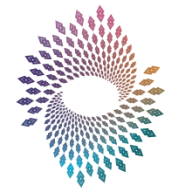Coaching Frameworks: Which Model Is Right for You?
- POSTED ON FEBRUARY 29, 2024

Professional Coaching Frameworks: Which Model Is Right for You?
Professional coaching has rapidly evolved into a distinct discipline supported by various frameworks that guide practitioners in developing their clients’ personal and professional lives. As an aspiring or professional certified coach, you stand on the threshold of a transformative journey, one where you will empower others to reach their highest potential. Choosing the right coaching framework is essential for this venture, as it will serve as the backbone of your practice, shaping your approach to coaching and the impact you can have on your clients.
Understanding these frameworks is about more than just knowing different models. It’s about finding a philosophy and methodology that resonates with your style and the needs of those you aim to help. Selecting a framework that aligns with your values and complements your natural coaching style can significantly influence your effectiveness as a coach. It could mean the difference between a good session and life-changing one for your client.
What Is a Coaching Framework?
A coaching framework is a structured approach designed to guide the coaching process. As you explore the professional coaching industry, understanding these frameworks is pivotal. They offer a blueprint for effective coaching sessions and ensure a consistent delivery method for your clients.
Here are foundational elements commonly found in many coaching frameworks:
1. Establishing the Relationship: Building trust and rapport between coach and client
2. Goal Setting: Identify and clarify what the client wishes to achieve
3. Exploring Options: Generating a variety of paths and strategies
4. Taking Action: Committing to specific steps towards the client’s goals
5. Review: Evaluating progress and making necessary adjustments
It’s crucial that the chosen framework aligns with your values and compliments your unique coaching style. Familiarize yourself with different models to discern which resonates most strongly with your approach. As you do, you’ll enhance your ability to support clients effectively and with confidence.
Importance of Frameworks in Professional Coaching
Frameworks in professional coaching play a vital role in shaping both the coach’s and client’s experience. They provide a structured approach that helps you, as a coach, to facilitate change effectively. A clear framework ensures a consistent methodology, enables you to deliver predictable results for your clients, and aids in measuring progress.
Understanding these frameworks can help you develop a unique coaching style that resonates with your values and the needs of those you coach. While each framework offers a different perspective, they all share a common purpose: to empower you to guide clients toward achieving their full potential!
Components of a Successful Coaching Framework
A coaching framework offers structured guidance throughout your coaching journey, influencing your coaching style and process. Here are a few fundamental components of a successful coaching framework:
- Coach-Client Relationship: Building a strong, trust-based relationship enables effective collaboration and a safe space for clients to explore their challenges.
- Problem-Solving Techniques: Whether identifying obstacles or exploring new possibilities, problem-solving empowers you to guide clients toward clarity and action.
- Goal Setting: Helping clients identify and set goals is pivotal in providing direction and focus. It’s your job to help them set realistic, achievable goals — a process that’s both science and art.
- Transformational Processes: Encouraging deep reflection and challenging existing mindsets are all a part of this transformative journey and can lead to profound changes in your clients’ perspectives.
- Measurement of Results: Measurable outcomes are vital for tracking progress and demonstrating the value of coaching. Using qualitative and quantitative methods will capture the full impact of your interventions.
Your choice of a coaching framework impacts the effectiveness of your practice. Focus on nurturing a solid coach-client bond, use robust problem-solving and goal-setting methods, inspire transformation, and continuously measure the outcomes. This holistic approach will be a foundation for your success as a coach.
5 Common Coaching Models to Consider
Selecting the appropriate coaching model is crucial for your coaching success. It may seem daunting at first, but making the right choice will significantly impact your outcomes. The following coaching frameworks are widely recognized for their effectiveness and can greatly inform your coaching style.
GROW Model
Originating from the corporate sector, the GROW model is a straightforward approach where G stands for goal setting, R for examining reality, O for options exploration, and W for establishing the will to move forward. This model emphasizes structured progression and is especially useful in performance coaching scenarios.
CLEAR Model
The CLEAR model focuses on facilitating a deep understanding and transformation within a client. It involves challenging and supporting clients to move beyond their comfort zones. The CLEAR acronym stands for contracting, listening, exploring, action, and review, marking the stages of the coaching process.
STEPPA Model
This model is distinctive for its systemic approach. STEPPA stands for subject, target, emotion, perception, plan, pace, and adapt, outlining the journey from problem identification to action and adaptation. It integrates emotional intelligence with strategic planning, suitable for those who value a holistic method.
Oskar Model
The OSKAR model is a solution-oriented approach that shifts focus from problems to solutions. The sequence includes outcome, scaling, know-how, affirm & action, and review. It is effective when you aim to empower clients to build on their existing strengths and successes rather than focusing solely on issues.
Co-Active Model
The Co-Active model is a versatile framework that can be applied to a variety of contexts, such as organizations, projects, teams, education, and personal development. This model is built upon four fundamental principles. The first principle embraces the belief that people are naturally creative, resourceful, and whole. The second principle is about being present in the moment, which means we can tackle any challenge that comes our way. The third principle emphasizes the importance of focusing on the whole person so that we can embrace all aspects of our humanity. Lastly, the fourth principle aims to trigger transformation, not just through small incremental changes but through significant shifts that lead to a greater transformational outcome.
How to Choose the Right Model for Your Coaching Program
When selecting a coaching model for your professional development, it’s important to assess your personal coaching style and your specific needs in a coaching program. Here are some steps to guide you in choosing the most suitable coaching framework:
1. Identify Your Goals:
- What do you hope to achieve with your coaching program?
- Are you looking to address specific challenges or foster overall development?
2. Understand Different Models:
- Research widely used frameworks like GROW, CLEAR, and OSCAR.
- Evaluate how each framework aligns with your coaching objectives.
3. Consider Your Style:
- Reflect on your personal coaching style.
- Are you more directive or collaborative?
- Choose a model that complements your natural approach.
4. Feedback and Evaluation:
- Look for models that include mechanisms for feedback and assessment.
- Continuous improvement is key to a thriving coaching practice.
5. Training and Resources:
- Seek out coach training programs for the models you’re considering.
- Ensure there are ample resources available to support your learning.
Making the right choice involves careful consideration of these factors. Learn more about building a successful coaching framework through CTI’s coach training programs.

Co-Active Training Institute (CTI)
Since 1992, CTI has been working with coaches and leaders around the world, helping them navigate toward stronger relationships, integral solutions, and creating meaningful impact in the world. The work we do goes beyond training. Through ground-breaking teaching methods and a global network of world-class faculty and partners, the Co-Active difference delivers contextually relevant and experiential learning that ignites transformation and a life-long journey developing the deepest expression of leadership in each human being.
View WebsiteMost Recent
How to Quit Your Day Job for a Dream Career | Co-Active April 24, 2024

Tips for Starting a Coaching Business for Aspiring Entrepreneurs April 17, 2024

How to Adapt to the Future of Leadership with Coach Training April 10, 2024

Feeling Stuck? How to Create from Adversity | Balance Coaching April 03, 2024

